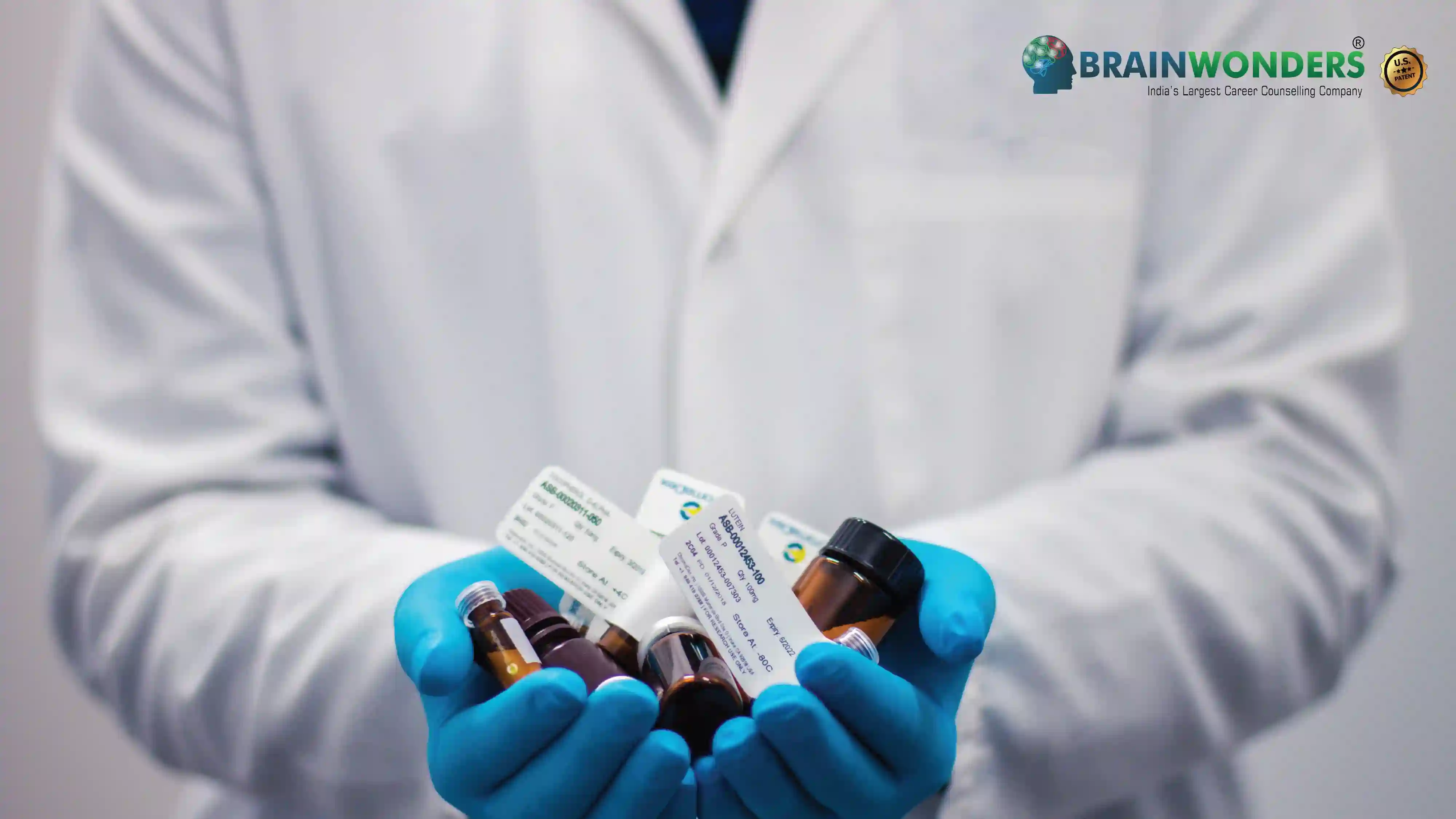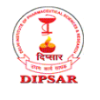How to become a Pharmacist
Overview, Courses, Exam, Colleges, Pathways, Salary

Overview
Who is Pharmacist ?
A pharmacist is a health care professional specializing in the usage and administration of medication. They dispense prescriptions to patients upon receiving a physician's orders. Pharmacists are experts on how drugs work and interact with the body so that patients who take them achieve the best possible results. A pharmacist is accountable for developing and delivering suitable pharmaceuticals to patients. They incorporate this by following doctor's orders or by making about the patient's problem and needs. The job requires a high level of reliability and experience. They do not generally hand out the prescribed medicines. Instead, they ask for a prescription for the same. They have the experience and enthusiasm to help people and appropriate solutions to their problems. They are pharmacy experts, which gives them an upper hand in utilising the medicines for the highest efficiency and most minor side effects. They provide a doctor's prescription and help the patient follow safe usage of medicins. They are familiar with the composition of the medicins and how they work on the human body. They are fully qualified to explain the symptoms to help them get immediate treatment for their general conditions or help them by referring them to a suitable doctor.
Typical day at work
What does Pharmacist do?
A pharmacist is given the responsibility to mandatorily follow the following:
- They supply or supervise the administration of medicines and related supplies as prescribed by the doctor.
- They revise prescriptions for checking the accuracy of drugs on the human body.
- They guide patients about the proper use of medications.
- They keep a check on daily orders, as well as manage automatic refills.
- They team up with other healthcare experts in order to plan, monitor, review, and evaluate the efficiency of the patient.
- They suggest drug therapy developments when needed.
- They ensure that the pharmacy practices all local, state, and federal laws.
- They educate inmates and staff members on drug therapies.
Abilities and Aptitude needed
What are the skills, abilities & aptitude needed to become Pharmacist?
Becoming a successful Pharmacist requires a combination of abilities, skills, and aptitudes that enable you to excel in the pharmacy field, provide optimal patient care, and ensure the safe and effective use of medications. Here are some essential attributes:
- Scientific Acumen: A solid foundation in chemistry, biology, and pharmacology is crucial for understanding drug interactions, mechanisms of action, and patient responses.
- Attention to Detail: Pharmacists must be meticulous in medication dispensing, dosage calculations, and verification to prevent errors.
- Problem-Solving Skills: Analyzing complex medication regimens, addressing drug interactions, and resolving medication-related issues demand effective problem-solving abilities.
- Ethical and Professional Judgment: Pharmacists must make ethical decisions, uphold patient confidentiality, and demonstrate professional integrity.
- Communication Skills: Clear and empathetic communication is vital for counselling patients, collaborating with healthcare teams, and educating the public.
- Medication Management: Proficiency in medication dosages, routes of administration, and proper use is essential for safe patient care.
- Patient-Centred Care: Pharmacists must prioritize patients' needs, preferences, and cultural considerations in medication management.
- Clinical Assessment: Developing clinical skills to assess patients' medical conditions, symptoms, and medication needs is critical in various healthcare settings.
- Critical Thinking: Pharmacists analyze medical histories, interpret lab results, and assess drug therapies to make informed decisions.
- Organizational Skills: Managing multiple prescriptions, patient records, and administrative tasks requires effective organizational abilities.
- Time Management: Efficiently managing workload, patient interactions, and pharmacy operations is essential in fast-paced environments.
- Interpersonal Skills: Building rapport with patients, collaborating with healthcare providers, and working as part of a team contribute to effective patient care.
- Adaptability: The healthcare landscape is ever-changing, and pharmacists must stay current with new medications, treatments, and regulations.
- Technological Proficiency: Comfort with pharmacy software, electronic health records, and technology tools enhances efficiency and patient safety.
- Continuous Learning: Pharmacists must commit to ongoing education to stay updated on medical advancements, drug interactions, and emerging therapies.
- Empathy and Compassion: Understanding patients' concerns, providing emotional support, and showing empathy contribute to patient well-being.
- Regulatory Knowledge: Understanding pharmacy laws, regulations, and standards ensures compliance with legal and ethical guidelines.
- Leadership Abilities: In roles such as pharmacy managers or clinical coordinators, pharmacists need leadership skills to guide teams and make decisions.
- Attention to Patient Safety: A commitment to patient safety involves identifying and preventing medication errors and adverse reactions.
- Cultural Competence: Sensitivity to diverse cultural backgrounds helps pharmacists provide patient-centred care and effective communication.
Salary
Salary for Pharmacist?
Salary of a Pharmacists is as follows :
- Minimum Monthly Salary: Entry-level pharmacists may earn a minimum monthly salary of around INR 25,000 to INR 35,000. These are typically individuals who have recently graduated and are starting their careers in pharmacy.
- Maximum Monthly Salary: Experienced and senior pharmacists with several years of experience, advanced degrees, and additional certifications may earn anywhere from INR 50,000 to INR 1,00,000 monthly. Pharmacists working in high-demand sectors, such as hospital pharmacies or research institutions, may have higher earning potential.
- Annual Salary: The annual salary may range from INR 3,00,000 to INR 4,80,000 for entry-level or junior pharmacists. As pharmacists gain more experience, take on supervisory roles, or specialize in clinical pharmacy or pharmaceutical research, their annual income can increase from approximately INR 6,00,000 to INR 12,00,000 or higher.
- Highest Paying Jobs and Scope: Pharmacists working in hospitals, pharmaceutical companies, or research institutions may have better salary prospects. Clinical pharmacists, drug safety specialists, and pharmacists involved in pharmaceutical research and development may also command higher salariesWith the healthcare sector expanding and the importance of medication safety and management increasing, there is a growing demand for skilled pharmacists in India.
Pathways
How to become an Pharmacist?
Entrance Exam
Entrance Exam for Pharmacist ?
Admission into postgraduate pharmacy courses is done through Graduate Pharmacy Aptitude Test (GPAT). In Telangana state, TS Polycet is conducted for the students who want to purse Diploma in Pharmacy from the colleges of Telangana.
Bachelors-
- NEET 2020 – National Eligibility Cum Entrance Test
- PUCET 2020 – Punjab University Common Entrance Test
- KEAM 2020 – Kerala Engineering, Agriculture and Medical
- IPU CET 2020 – Indraprastha University Common Entrance Test
- BVP CET 2020 – Bharati Vidyapeeth Common Entrance Test
Some of the popular entrance exams for PG course are as follows:
Masters-
- TS EAMCET (Telangana State Engineering, Agriculture & Medical Entrance Test)
- AP EAMCET (Andhra Pradesh Engineering, Agriculture & Medical Entrance Test)
- AP PGECET (Andhra Pradesh Post-Graduate Engineering Common Entrance Test)
- MH CET (Maharashtra Common Entrance Test)
- KCET (Karnataka Common Entrance Test)
- UKSEE (Uttarakhand State Entrance Exam)
- Delhi CET (Delhi Common Entrance Test)
- BITSAT (Birla Institute of Technology & Science Admission Test)
- WBJEE (West Bengal Joint Entrance Examination)
Courses
Which course I can pursue?
Best Colleges
Which are the best colleges to attend to become an Pharmacist?
Industries
Which Industries are open for Pharmacist?
Pharmacists have diverse career opportunities across various industries beyond the traditional roles in community and hospital pharmacies. Here are some industries where pharmacists can find opportunities:
- Community Pharmacies: Traditional roles involve dispensing medications, providing patient counselling, and offering over-the-counter recommendations.
- Hospital and Clinical Settings: Pharmacists work in hospitals, clinics, and healthcare institutions, participating in patient care teams, managing medications, and ensuring safe drug use.
- Pharmaceutical Industry: Pharmacists contribute to drug research and development, quality control, regulatory affairs, and drug safety in pharmaceutical companies.
- Pharmacy Benefit Management (PBM) Companies: Pharmacists manage prescription benefits, formulary management, and medication cost considerations.
- Long-Term Care Facilities: Pharmacists manage medication for elderly residents in nursing homes or assisted living facilities.
- Pharmacy Informatics: Pharmacists work with technology and data, managing electronic health records, analyzing medication data, and optimizing pharmacy systems.
- Pharmacy Consulting: Pharmacists provide expertise in medication management, regulatory compliance, and healthcare consultancy.
- Pharmacy Associations and Organizations: Pharmacists engage in advocacy, education, research, and policy development in professional pharmacy associations.
- Research and Development: Pharmacists conduct research in academic institutions, pharmaceutical companies, and research organizations.
- Government and Regulatory Agencies: Pharmacists contribute to drug approvals, regulatory compliance, and public health initiatives in government health agencies.
- Clinical Trials: Pharmacists design and oversee medication-related aspects of clinical trials in research settings.
- Medical Writing and Communication: Pharmacists create medical content, write drug-related articles, and contribute to pharmaceutical communication.
- Public Health: Pharmacists work on public health campaigns, medication education, and disease prevention initiatives.
- Academia and Teaching: Pharmacists become educators, teaching future pharmacists, healthcare professionals, and patients about medications.
- Healthcare Technology Startups: Pharmacists contribute to innovative healthcare technology solutions, telemedicine platforms, and digital health initiatives.
- Pharmacovigilance and Drug Safety: Pharmacists monitor and analyze adverse drug reactions, ensuring medication safety and compliance.
- Nutraceutical and Herbal Product Industry: Pharmacists evaluate the safety and efficacy of natural products, supplements, and herbal remedies.
- Clinical Pharmacies: Pharmacists manage specialized clinical services, such as anticoagulation clinics, diabetes education, and medication therapy management.
- Pharmaceutical Marketing and Sales: Pharmacists work in pharmaceutical marketing, providing scientific and medical knowledge to support sales and promotion.
- Global Health and Humanitarian Organizations: Pharmacists contribute to healthcare initiatives, disease control, and medication access in international settings.
internship
Are there internships available for Pharmacist?
Internships provide valuable hands-on experience for aspiring Pharmacists to apply their knowledge, develop practical skills, and gain insights into the pharmaceutical industry. Here are some potential areas where Pharmacy internships might be available:
- Community Pharmacies: Interning at local pharmacies allows you to interact with patients, learn about medication dispensing, and provide counselling under the supervision of licensed Pharmacists.
- Hospital Pharmacies: Internships in hospital settings involve medication preparation, compounding, medication therapy management, and collaboration with healthcare teams.
- Pharmaceutical Companies: Interning at pharmaceutical companies offers exposure to drug development, regulatory affairs, quality control, and research and development.
- Clinical Research Organizations (CROs): Internships in CROs involve assisting with clinical trials, data collection, research documentation, and regulatory compliance.
- Pharmaceutical Regulatory Agencies: Interning at regulatory bodies provides insights into drug approvals, safety evaluations, and compliance with pharmaceutical regulations.
- Pharmacy Compounding Facilities: Internships focus on compounding specialized medications, customizing dosages, and ensuring quality control.
- Long-Term Care Facilities: Interning in nursing homes or assisted living facilities involves medication management for elderly residents.
- Speciality Pharmacies: Interning in speciality pharmacies provides exposure to managing medications for specific disease conditions or patient populations.
- Government Health Agencies: Internships with health departments or agencies may involve public health initiatives, medication education, and policy work.
- Pharmacy Benefit Management (PBM) Companies: Interning in PBMs involves understanding prescription benefits, formulary management, and medication cost considerations.
- Clinical Pharmacies: Internships in clinical settings focus on medication therapy management, patient counselling, and participating in multidisciplinary healthcare teams.
- Pharmacy Informatics: Interning informatics involves working with electronic health records, data analysis, and pharmacy technology.
- Academic Institutions: Some universities offer internships within their pharmacy departments, assisting with research, teaching, and academic initiatives.
- Healthcare Consultancy Firms: Internships may involve consulting on medication management, healthcare policies, or pharmaceutical marketing.
- Pharmacy Associations and Organizations: Interning with professional pharmacy associations provides exposure to advocacy, education, and industry events.
Career outlook
What does the future look like for Pharmacist?
Individuals interested in the career path for pharmacy deal directly with clients as a community pharmacist, also known as retail pharmacists. They also deal with prescribing and management of some medicins. There are many other opportunities for pharmacists in the pharmaceutical industry, research, internet or mail-order pharmacies, along with private practice. They are also chosen by industries, wholesalers, research academies, formulary management, academies as professors, etc. A few career options that best suit their job outlook are apothecaries. Clinical pharmacists, community pharmacists, consultant pharmacists, druggists, hospital pharmacists, etc.




.webp)


